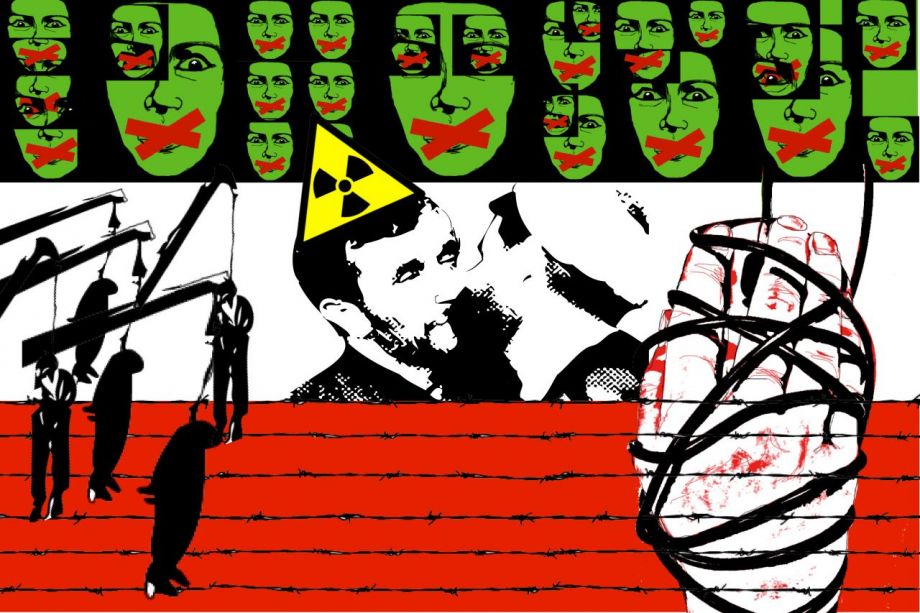
What do we really know about what is currently happening in Iran?
The country that tops the British Guardian’s list of countries in the world that have the most intense censorship of the web is Iran. In some ways Iran tries to block the web content even more severely than China does.
Reporters without borders assess the situation in the same way. The Iranian authorities not only use the method of closing down particular foreign sites, but have also forced the internet cafés to keep a log of who does what on the internet. Also, the internet traffic to other countries is deliberately slowed down. And it seems to have become even slower the nearer we are the elections in June. Apart from these more technical measures there are also the more familiar ones such as harassments by the police, and other similar groups related to those in power, of people who express themselves digitally. Reporters without borders claim that the authorities have closed down websites for the religious minority the Sufis and that they have arrested several bloggers and several lawyers who have defended these bloggers.
This rings of the familiar suppression of speech camouflaged by ideological excuses as it is encountered around the world. And so it is. But the interesting question is why Iran is salient in the statistics over countries that are desperately attempting to control the internet.
Those of us who over these past years have followed the development of a digital freedom of speech know that Iran was very quick to embrace the internet. Seven or eight years ago one spoke about the enormous blog explosion in Iran. A leading blogger called ‘Hoder’—Hossein Derakshan—taught many people to create their own blogs. He did not call himself a blogger though but preferred the term ‘citizen journalist.’ In 2006 he visited Stockholm, and in an interview I asked him why Iran was especially forward concerning the use of the internet. Derakshan mentions two reasons behind this. Firstly, that the ruling clergy in Iran were never specifically against new technology “as long as it served their purposes.” Secondly, that higher education is now free of charge in the country, which has made education more widely accessible. In 2010 ‘Hoder’ was sentenced to nineteen years imprisonment—the verdict was based on his so-called “collaboration with enemy nations.” Derakshan, it seems, was guilty of the crime of having visited Israel. Today he serves his sentence in the notorious Evin prison.
A poor consolation may be that the harsh repression of the internet in Iran today shows that more and more people in the country can manage more advanced technology in order to bypass the various hindrances imposed on them. Also, more people are willing to use this technology to gather information that the government is denying them access to. The tighter the police and the regime are holding fast the door, the stronger the pressure from the other side needs to become.
This new issue of PEN/Opp is released in time for the presidential elections in Iran. We have approached journalists and writers who speak from within the digitally censured Iran and also those who have special knowledge of issues that are banned. Issues such as, for example, the treatment of transvestites and homosexuals. In his short story “The Janus Face,” Ramesh Safavi narrates a reality we seldom encounter either in Iranian or Swedish media. And it is clear that under the surface of the Moslem republic there is a seething upsurge in matters that will come to change the Iranian society in the future. Both harrowing and hopeful tendencies are discernible—from an economy that is shakier than is officially acknowledged, to youthful subcultures where rebellion against a rigid regime can result in some drastic means of expression. Neimeh Doustdar, currently a guest writer who is offered a safe haven in Malmö, has written an open letter to the President of Ahmadinejad. The writer and journalist Mojgan Ayyari has interviewed young girls on the streets of Teheran about their views on love, sex, and leisure activities.
All this and more in this issue of PEN/Opp. Several of the writers have chosen to appear anonymously since they are writing from within Iran itself—writing about matters that they are not allowed to vent publicly.
PEN/Opp was initiated for this one purpose: to become a channel for voices that others want to silence. We are proud to be able to present a whole issue about Iran and to contribute to opening up the debate by presenting the literature that would help Iran to flourish could it be cherished fully by all—instead of being censored by the timid.

